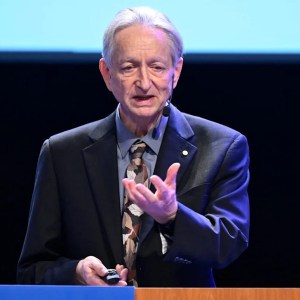Geoffrey Hinton, a leading figure in AI and a Nobel laureate, warns that artificial intelligence can lead to significant unemployment and increased profits for the wealthy. In a recent interview with the Financial Times, he shared his concerns about how companies might replace workers with AI technology. Hinton claims that the real issue isn’t AI itself but the capitalist system that encourages this approach.
While we haven’t seen massive layoffs yet, there’s evidence that AI limits job opportunities, especially for new college graduates. A survey by the New York Fed indicates that companies using AI are more inclined to retrain current employees instead of firing them, but layoffs may rise soon.
Hinton believes that industries like healthcare may remain relatively safe from job loss. If we can make doctors significantly more efficient, patients could receive better care at lower costs. He argues that mundane jobs are at the greatest risk of being replaced by AI technology.
He also commented on the concept of universal basic income proposed by some tech leaders. He argued that it wouldn’t address the sense of purpose people derive from their work. “What we do know is that we are at a pivotal point in history,” Hinton remarked. “The future remains uncertain, and predicting it is challenging.”
Data shows that AI’s impact has already shifted workplace dynamics. A report by the World Economic Forum estimated that automation could displace 85 million jobs by 2025, while creating 97 million new roles that require more complex skills. It’s clear that change is on the horizon.
Hinton has been vocal about the potential dangers of unregulated AI, highlighting risks like misuse for harmful purposes. He noted that while there are undeniable benefits to AI, we must remain vigilant.
As he shared in his interview, Hinton uses AI tools in everyday life, even joking about a past relationship where his ex-partner used ChatGPT to express her feelings about their breakup. His departure from Google stemmed from personal reasons, not just a desire to speak freely about AI’s risks.
In summary, Hinton’s insights remind us that while AI holds great promise, it also presents significant challenges. The balance between innovation and ethical use will shape our future.
For a deeper dive into the complexities of AI and its societal impacts, check out additional insights from the World Economic Forum.
Source link
Geoffrey Hinton, technology, artificial intelligence, unemployment, Computer scientist, Nobel laureate


